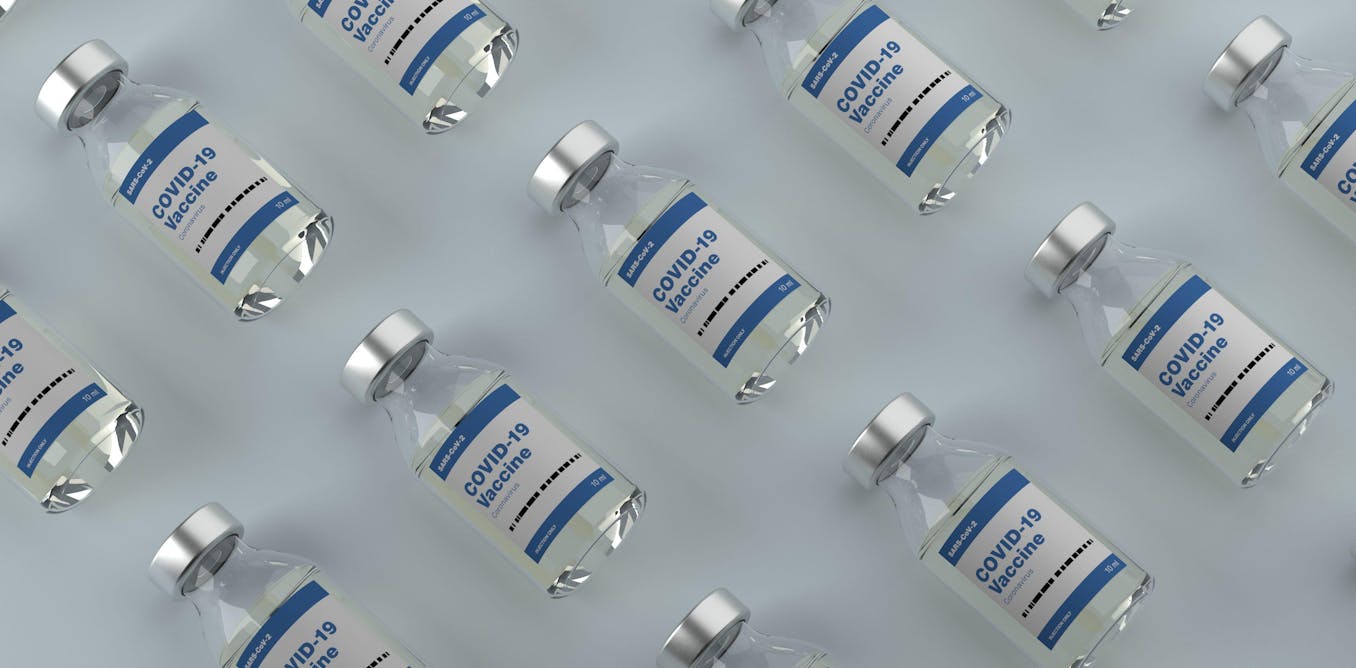COVID vaccines are working. Data from Israel and Scotland show that they are protecting people and may also be slowing the spread of the SARS-CoV-2 virus. If everything stays the same, people will be protected from serious illnesses, the number of viruses will gradually decrease and we can really plan a way out of the pandemic.
There is also growing evidence that, once infected, there is a good chance that you will be protected from other infections or, at least, from having a less serious illness. This makes sense, as that is why your immune system evolved in the first place.
Over millions of years, the immune system has been sculpted by the laws of natural selection. Once infected or vaccinated, memory B and T cells persist. When you are infected again, they wake up and clear the infection to the point that you won’t even feel bad. You can see how it made evolutionary sense. Feeling sick means that you are less likely to procreate, so there would be a survival advantage for immunity.
However, an important question in immunology, when it comes to infectious diseases and vaccines, is: how long can protection last? There are several variables here, from the type of pathogen that infects you, to the severity of the initial disease, to your general health and age. All of this makes it difficult to predict what could happen with COVID.
Measles or flu?
It may be useful to compare what we currently know about COVID-19 with two diseases about which we know a lot and for which we have effective vaccines: measles and influenza. In the future, what will COVID be with?
Measles is a much more stable virus than SARS-CoV-2 – it doesn’t mutate much. It also usually provokes a strong immune response and, therefore, immunity tends to last a long time, either by infection or by vaccines. One study showed that measles antibodies last a lifetime. Because it is such a stable virus, when it reinfects, the vaccine you may have had years ago, or the response to natural infection, will protect you.
The flu, however, is different. The flu virus can change easily. This means that we must continue to vaccinate against it, as vaccines against an earlier variant may not protect against a new variant. The stability of a virus is, therefore, a determining factor for the persistence of protection.
COVID-19 is probably somewhere between measles and flu. It is not as stable as measles and it is not as changeable as the flu. We can expect immunity to last against COVID-19, but probably not as long as measles. And we will probably have to vaccinate against the variants that arise, as we do for the flu.
One thing we have in our favor is the repetitive nature of the SARS-CoV-2 surface. The spike protein covers the surface of the coronavirus in a very uniform manner. Antibodies against smallpox, which also have a highly repetitive surface, last a lifetime. In this situation, macrophages (a type of white blood cell that surrounds and consumes pathogens) may be better able to swallow the antibody-coated virus.
If the spike protein mutates and the antibodies don’t bind as well, it is worth giving a boost injection against the new spike protein – which is what is planned.

Wikimedia Commons, CC BY
And if antibodies don’t work as well against variants, T cells can. This may mean that we will not need reinforcements and that we can have long-term protection against multiple variants. And even if the immune response is lower against the variants, we will probably still be protected from serious illnesses.
An important aspect of natural infection is how strong the initial immune response is. The common cold usually causes only a mild response in the upper airways. This is because a virus that is limited to your nose is not much of a threat. This means that the immune response doesn’t really work. It is insufficient for the appearance of memory B and T cells.
If the flu causes a great struggle, which the immune troops never forget, the common cold is a mere conflict that is soon forgotten. A light dose of COVID can be similar. If you have had a more pronounced illness, this can be helpful and make you more resistant to reinfections. But if you only had a mild illness, or if you have no symptoms, you are at risk of reinfection.
Where vaccines come into play, it is their power. They generally provide a much stronger immune response than natural infection. This is because natural immune responses lack the malice of the pathogen, many of which have elaborate ways to disable the immune response. Again, this is due to evolution.
Viruses that carry proteins that can limit immunity are more likely to survive. This can be especially important with SARS-CoV-2, which has several ways to limit immunity. Because vaccines comprise a part of the virus – such as the spike protein – or an entire inactivated virus, they do not limit immunity and therefore a robust immune response occurs. The Modern vaccine, for example, has been shown to elicit a durable antibody response, in which natural infection is more variable.
We are now confident that SARS-CoV-2 infection is very likely to provide some protection against reinfection. But, since we are seeing variants, it is advisable to prepare for booster doses with new vaccines for those who are vulnerable. We will have a better idea if they are needed in the coming months.
If they are, COVID will be more like the flu, which needs reinforcements. But if they are not, it will be more like measles, in which the only threat is to those who refuse vaccination.
